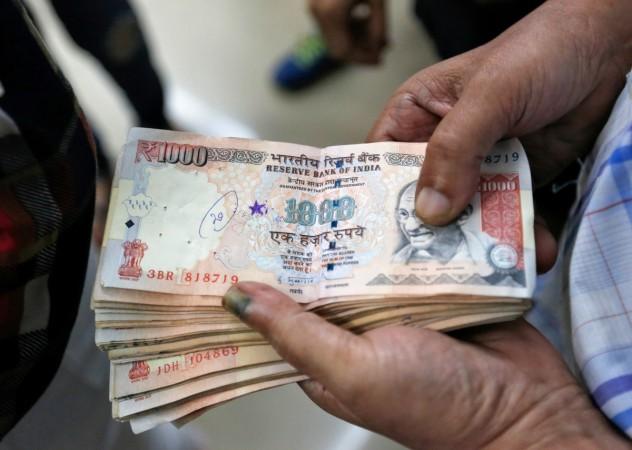
Cash deposits above Rs 2.5 lakh would be taxable and a 200 percent penalty could levied if there is an income mismatch, Minister of Finance Arun Jaitley said on Wednesday. The announcement comes a day after Prime Minister Narendra Modi said that Rs.500 and Rs. 1000 notes will be scrapped to flush out black money in the country.
Jaitley on Wednesday said that people can deposit as much cash as they want, however, the money will be scrutinised. He also assured small businessmen, housewives, artisans and workers with savings that any cash deposit under the bracket of Rs. 2.5 lakh wouldn't be taxable or scrutinised.
"There will be no harassment by the Income Tax Department for such small deposits made," revenue secretary Hasmukh Adhia told reporters.
"We would be getting reports of all cash deposited during the period of 10th November to 30th December above a threshold of Rs 2.5 lacs in every account. The department would do matching of this with income returns filled by the depositors. And suitable action may follow," he said.
Cash deposits that don't match income will be taxable up to 30 percent and a penalty of 200 percent on the taxable amount, Adhia said.
"The credibility of the Indian economy will increase," he told reporters. He further added that the tax revenue will increase, since currently only 3 percent of the population pays tax.
The government also said that those who buy gold with cash will have to give their pan card number to the jewellers. Action will be taken against those who do not comply.
"We are issuing instructions to the field authorities to check with all the jewellers to ensure this requirement is not compromised."
The decision to scrap Rs. 500 and Rs. 1000 notes created uncertainty in many, especially the poor who have cash savings.















